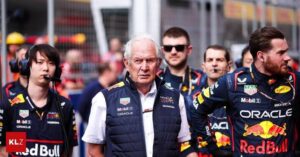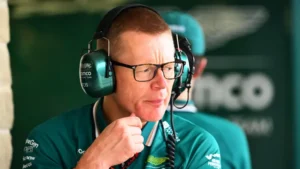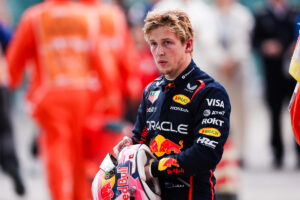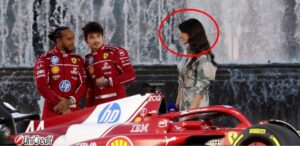F1 REPORT: FIA Investigation follows after Norris Questions Verstappen’s…….Read more
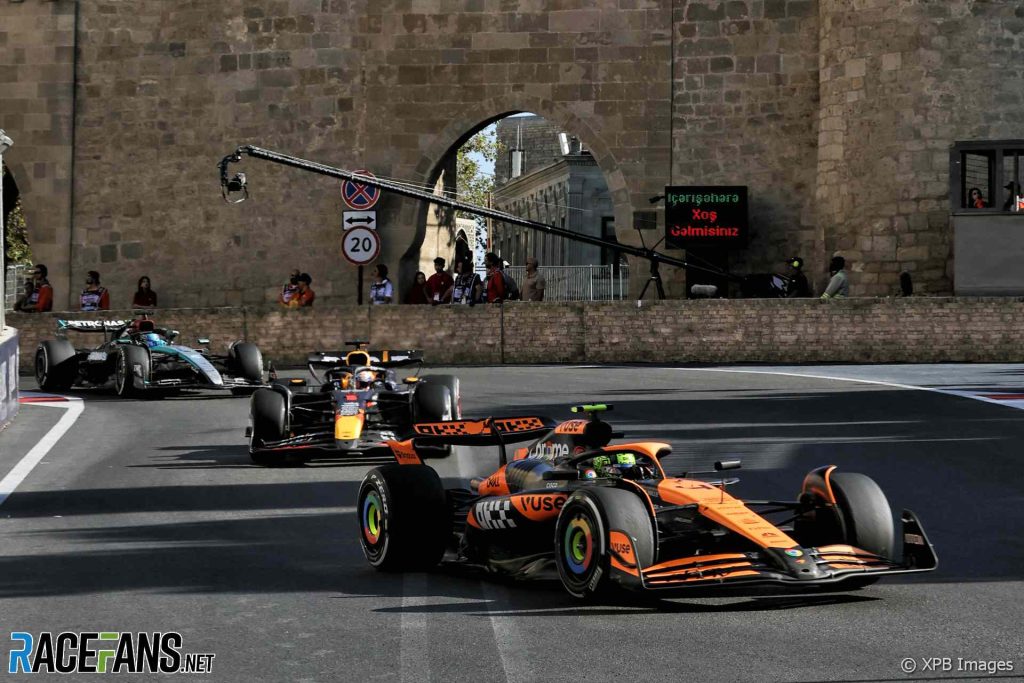
Lando Norris (GBR) McLaren MCL38. 15.09.2024. Formula 1 World Championship, Rd 17, Azerbaijan Grand Prix, Baku Street Circuit, Azerbaijan, Race Day. - www.xpbimages.com, EMail: requests@xpbimages.com © Copyright: Bearne / XPB Images
Norris Questions Verstappen’s VSC Behavior: FIA Investigates
Lando Norris raised concerns over Max Verstappen’s actions during the Virtual Safety Car (VSC) period at the end of the Azerbaijan Grand Prix, believing the reigning champion might have breached the rules. Norris’ query to his team came after Verstappen appeared to overtake other drivers under VSC conditions, a situation in which overtaking is generally prohibited.
Norris had earlier been forced to abandon a lap in qualifying when yellow flags were shown due to an incident on the track. Drawing a comparison between the two situations, Norris questioned Verstappen’s behavior in the final moments of the race, stating that he was unsure if the Dutchman’s moves were within the regulations.
“I had the ‘VSC’ on my dash with yellow lights, similar to what I experienced yesterday in qualifying,” Norris explained after the race. “There was a crash, paramedics were on the track, and typically in these scenarios, overtaking isn’t allowed.”
Given these circumstances, Norris was surprised by Verstappen’s apparent overtakes. “He was overtaking,” Norris remarked. “I wasn’t sure if it was legal, so I questioned it with my team. I didn’t think you’re allowed to overtake in those conditions, but maybe I’m wrong.”
Norris’ remarks come in light of his experience in qualifying, where yellow flags forced him to abandon a promising lap. In racing terms, yellow flags and VSC periods are meant to neutralize the race, allowing for safety or emergency teams to attend to incidents without the risk of further accidents. Overtaking during such periods is strictly forbidden unless allowed under specific conditions, so Norris’ concern was justified based on his understanding of the situation.
However, Max Verstappen was quick to refute any suggestion of rule-breaking. The Red Bull driver, who had already crossed the finish line when the VSC was activated, maintained that his actions were entirely within the regulations. Speaking to Sky Sports after the race, Verstappen firmly denied any wrongdoing.
“I didn’t pass under the Virtual Safety Car,” Verstappen insisted. “We crossed the line, the race was over, and there have been many examples in the past, even this year, where we’ve done exactly the same thing. So, for me, I’m a bit surprised by the reaction.”
Verstappen’s comments reflect his belief that once the finish line has been crossed, the typical restrictions under VSC or yellow flags no longer apply, a stance he believes is consistent with how previous races have been handled. His explanation suggests that his team had already deactivated race mode when the VSC was in place, which, in his view, made overtaking permissible as the race had technically concluded.
While Verstappen confidently defended his position, the FIA has launched an investigation into the incident, along with several other drivers. Nico Hulkenberg, Pierre Gasly, and Esteban Ocon are also under scrutiny for potentially overtaking during the VSC period after the race concluded.
The FIA’s investigation will likely examine whether the overtakes in question occurred after the drivers had crossed the finish line, a critical point in determining whether or not any rules were broken. Overtaking during a VSC period is a serious offense, given the potential safety risks involved. However, if the race had officially ended, the regulations may permit such maneuvers.
The FIA’s ruling on the matter could have significant implications, particularly in terms of penalties or changes to race results. While Verstappen’s championship lead is unlikely to be affected, any penalties could impact the final standings of the race. For now, Verstappen remains confident that his actions were legal, but the outcome of the investigation will determine whether or not the concerns raised by Norris and the involvement of other drivers will result in further consequences.
The decision could also clarify how VSC regulations are interpreted in future races, especially in end-of-race scenarios.

